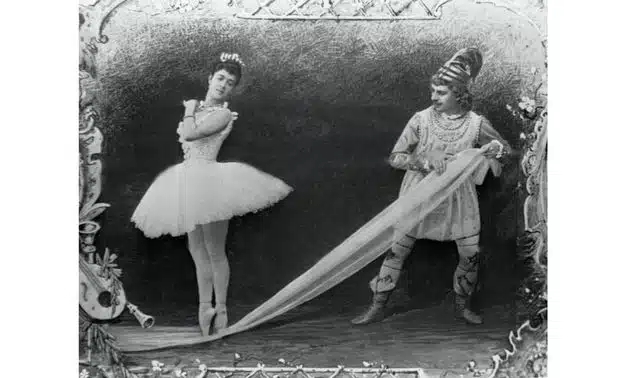This panel is one of a series of murals depicting Indiana’s social history created for the 1933 Chicago World’s Fair. Courtesy the Library of Congress.
Advice that may seem unconventional: if your genealogy research has reached an impasse or you feel as if you have lost an ancestor, stop looking specifically for them.
Instead, focus on events surrounding them and any social issues which could have had an effect on their life or decisions they made. Ask questions such as:
Why did your ancestors make certain decisions? Why did they move from their native state into another one?
Why did those great-great-grandparents cross state or county borders to get married? And, why did your great-grandfather choose that particular occupation?
What was Monday Morning like for Your Ancestor in May 1890 and Why should It Matter?
Simply, genealogy researchers need to understand the influences on their ancestors lives and decision-making to find those hard-to-locate ancestors; additionally, understanding these and other social history questions gives us greater insight into their lives as human beings.
This article will guide you through various aspects of social history and the records available to discover them.
What Is Social History? According to dictionary definition, “social” history refers to any study which explores the social, economic and cultural facets of an area or group of people. From an genealogist’s standpoint, “social history” covers trends, events, forces (local, regional or national) which had an influence on our ancestors lives – whether directly or indirectly. Furthermore, “social history” includes how regular people lived their daily lives such as working conditions and leisure time activities – these aspects all are covered under social history’s purview as well.
Understanding what influenced our ancestors’ decisions can help us locate records more effectively; to do this, researchers must put themselves in their ancestor’s shoes and think as they did.
Have you considered how the terrain of where your ancestors lived impacted their lives? I was particularly challenged when researching my family in Surry County, N.C. Finding marriage records can be difficult in general but finding this specific record proved especially daunting – simply put, the record wasn’t where it should have been!
Needing advice, I reached out to a local researcher. Her question seemed odd at first: when were couples getting married.
“Lisa, it is important to consider the terrain and land up here when searching marriage records. Keep this in mind.” The researcher gave an invaluable piece of advice: “Take into consideration where they lived when searching.”
Surry County lies in the foothills of North Carolina near its border with Virginia. Couples marrying during summer could easily access Surry’s courthouse; however, when rivers rose during winter or spring floods they would go to whatever courthouse could safely accommodate their event, even if that meant traveling across state lines (in this instance Virginia).
Land and weather played an influential role in when and where life events happened and were recorded for my rural ancestors. Being from a more “flatland” perspective, I failed to acknowledge how foothills terrain can influence logistics of an ancestor’s marriage location; indeed it was recorded at a Virginia courthouse!
Now That We’re Exploring Social History
Now That We’re Exploring Social History, What Factors Need to be Taken into Consideration Now that you’ve decided to include social history as part of your research, here are six key areas you should investigate:
1. Customs for Celebrating Life Events
How did your ancestors celebrate a marriage or baptism, identify godparents for their children? The customs surrounding such major life events often reflect faith, cultural heritage and socioeconomic status–all important data points for genealogists.
Holidays provide insights into religious tradition and culture. How did people celebrate certain holidays, were certain foods eaten on specific dates, or did certain customs originate in specific regions within an ancestral home country? Study your ancestor’s traditions as part of your research – then follow up by consulting records or resources such as newspapers that help reveal which religious or ethnic groups celebrated these traditions and why.
2. Health
Chronic illnesses, epidemics and pandemics are not unique to modern society – prior generations also experienced these events and genealogy researchers can find evidence in their ancestors’ lives as proof.
Public health crises often transform societies, as we’ve witnessed recently with COVID-19 pandemic. Genealogists must study these large-scale illnesses to understand the effect they had on their ancestors.
If your ancestors were present during an epidemic (like the 1918 “Spanish Flu”), take time to discover its effects on communities, societies, and individuals living within those areas.
As death tolls increased (with families dying off quickly), widows and orphans increased as well – offering us an unexpected yet useful chance to uncover records. If an ancestor suddenly widowed, search estate records and guardianship documents; for children separated from their families due to orphanages or separation, use these records as leads; otherwise it might provide insight into who may have joined existing families by way of this reshuffle – it might even introduce unexpected children that had never before existed!
Health crises often prompt migration. Perhaps your family had to move in order to escape a severe health crisis or be closer to superior healthcare options; during the mid-1800s, those suffering from tuberculosis might have moved west in search of more suitable climate.



